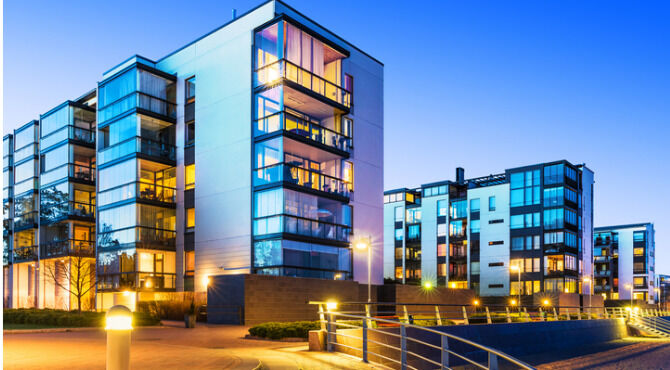Satellite offices to aid hybrid working?
The unprecedented growth in hybrid working has led to an increase in demand for 'satellite' offices away from city centres, according to a new survey.

 8 November 2022
8 November 2022The Autumn issue of Think Global People magazine is out now
A poll of 3,000 office workers across Europe, conducted by global workplace creation company Unispace, concluded that employees' new working preferences had created "an immediate need for firms to re-think their real estate footprint".Related reading from Relocate Global
- Bosses support monitoring home workers
- Report unveils pros and cons of hybrid working
- International remote working: global mobility’s leading edge?
More, not fewer, office spaces?
With almost two-thirds of office workers opting for remote or hybrid working rather than commuting to city centres five days a week, the Unispace report says employers should consider the use or addition of satellite offices.The survey found that 79 per cent of respondents would be happier to return to an office if it was just five to 10 minutes away from their home, "suggesting that satellite offices could be a solution to boost collaboration, socialisation, engagement and staff retention".Unispace said the findings in the report – 'The Real Estate Dilemma: Is now the time to reduce your real estate footprint?' – reinforced the idea that, as hybrid working becomes the norm for the majority of office workers, strategic decisions were needed on where office space should be located and how buildings could best be utilised.Re-building bonds in more local physical offices?
Lawrence Mohiuddine, EMEA Chief Executive at Unispace, said: "The advantages of working collectively shouldn't be underestimated. In a post-pandemic world, workers are craving the human contact that they may have taken for granted pre-Covid."With 79 per cent of employees admitting they would be happier to return to the office if it was just five to 10 minutes from home, creating satellite offices to supplement an amenity-packed HQ could be a logical approach for firms seeking to meet the diverse needs of their people post-pandemic."Crucially, firms must look to understand not only the needs of their current employees, but also the composition of their future workforce and their distinct preferences, which we know differ from country to country and by numerous demographics such as life-stage, income and gender. By taking this approach, organisations can effectively optimise short and long-term real estate decisions."The rise of the curated workspace?
At the time of the survey, only 26 per cent of respondents were working full-time in an office, with 13 per cent entirely home-based and the remainder engaged in hybrid working.Unispace said: "Businesses are certainly responding to the new working styles with the amount of abandoned office space in London now estimated to have reached 20.2 million square feet."However, the company added that the research indicated that abandoning the workplace was not the best response, with more than three-quarters of respondents saying that it was easier to bond with colleagues while working in an office."Employees are clearly looking to employers to curate their workplace experience, providing options based on the type of work or activity taking place on any given day," reported Unispace."This could include satellite offices together with a destination workplace such as an HQ, which focuses on events, training and development, product launches, or hosting clients, alongside the required focus and collaboration spaces."Subscribe now to Think Global People magazine and read more from David in the autumn issue
Subscribe to Relocate Extra, our monthly newsletter, to get all the latest international assignments and global mobility news.Relocate’s new Global Mobility Toolkit provides free information, practical advice and support for HR, global mobility managers and global teams operating overseas.
 Access hundreds of global services and suppliers in our Online Directory
Access hundreds of global services and suppliers in our Online Directory©2024 Re:locate magazine, published by Profile Locations, Spray Hill, Hastings Road, Lamberhurst, Kent TN3 8JB. All rights reserved. This publication (or any part thereof) may not be reproduced in any form without the prior written permission of Profile Locations. Profile Locations accepts no liability for the accuracy of the contents or any opinions expressed herein.




























